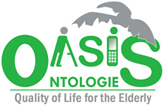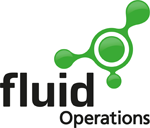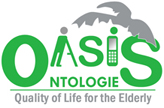Technical Events
Minute Madness
The Minute Madness session will be organized before the poster and demo track and will consist of 1-minute presentations about the exhibits of the track. The event's goal is twofold: on the one hand, it gives an opportunity to poster and demo presenters to advertise their exhibit to a large audience and therefore ensure that all interested participants will visit their booth during the main track. On the other hand, this one hour session will provide conference participants with a quick (and fun!) overview of the presented works so that they can make the best use of their time during the session and visit the exhibits which are most interesting for them.
Semantic Web Challenge
Submissions are now invited for the 9th annual Semantic Web Challenge, the premier event for demonstrating practical progress towards achieving the vision of the Semantic Web. The central idea of the Semantic Web is to extend the current human-readable Web by encoding some of the semantics of resources in a machine-processable form. Moving beyond syntax opens the door to more advanced applications and functionality on the Web. Computers will be better able to search, process, integrate and present the content of these resources in a meaningful, intelligent manner.
Linked Data-a-thon
The main goal of the Linked Data-a-thon competition is to develop innovative applications that showcase the benefits of Linked Data ... in two weeks! The spirit of this competition is to demonstrate what is possible with Linked Data, even in a short amount of time. The competition starts on October 1, 2011, and it closes 14 days later, on October 15, 2011. During this time each participating team works locally or remotely to develop a Linked Data based application that satisfies the requirements listed below. To enforce the spontaneous, hackathon-like nature of this competition, the applications must satisfy additional requirements that will be announced on October 1, 2011. Anybody can participate in this event and the submitted applications will be presented at the Linked Data gathering during ISWC 2011.
Meet & Learn Events
Panel: Semantic Web Death Match 2011: Industry vs. Academia vs. Standards
The past couple of years have been an "interesting time" for the Semantic Web - with both the positive and negative aspects that that implies. We have seen new standards emerging from the W3C, new proposals out of Google and Facebook which have different visions for the future, and a growing application space struggling to make head or tail out of all of it. Schema.org? OWL 2.0? RDFa? who controls the vision of the Semantic Web's future?
Moderator
- Jim Hendler, RPI
Panelists
- Michael Hausenblas, DERI
- Martin Hepp, Universität der Bundeswehr München
- Ian Horrocks, University of Oxford
- Chris Welty, IBM
Mentoring Lunch
In its third year, the Mentoring Lunch at the International Semantic Web Conference brings together graduate students and early-career researchers with researchers and faculty for a lively discussion and question-answering session on a variety of topics. If you are a PhD student, a postdoc, or have just started an independent research career and would like to get advice on any of the round-table topics listed below, please join us at the specially designated tables during the lunch break on Wednesday, October 26, 2011 in room TBA. The mentors are all volunteers from the speakers, chairs, and other senior participants at the conference.
Meet the Editors
There are now more than half a dozen journals that publish semantic-web related research, and it is often difficult for authors to navigate this landscape. In this panel discussion, chaired by Rudi Studer, the editors from these journals will help the authors understand the different focus of each journal, the rewards and perils of journal publishing, and the steps in preparing their research for journal publications. The editors will then answer the authors' questions.
Moderator
- Rudi Studer, Karlsruhe Institute of Technology, Institute AIFB
Town Hall
It has become a tradition at ISWC to come together in a town hall meeting to have conference participants share ideas on what they would like to see at the future ISWCs and to discuss what works and what does not work at the conference. Please join the members of the conference organizing committee in an informal discussion about all the new events that we added to the conference program this year and tell us what you would like to see in the future and what you liked and didn't like this year.
Moderator
- Natasha Noy, conference chair for ISWC 2011
Semantic Information Management: Future funding by EU and beyond
As the Semantic Web grows from its infant into its teenage years, its research challenges change, industry may better recognize how it may benefit from semantic technologies and yet there remain many research challenges to be met in order to grow them into technologies for all existing companies and for new companies that are still to be founded. This session wants to bridge between funders, industry and academics in order to present (parts of) the current funding situation as well as a panel discussion of what should be done in the future.
Session Organizers
- Márta Nagy-Rothengass, Head of Unit at European Commission DG INFSO/E2
- Steffen Staab, University of Koblenz-Landau
Sponsors' Events

THESEUS Symposium
Co-located Event
This symposium aims at proliferating the understanding of semantics, especially its usage within enterprises. On the one hand, speakers from industry show applications of semantics within various projects relevant within different application areas ranging from environmental information portals to automation and mechanical engineering. On the other hand, technologies developed within the Core technology Cluster of the THESEUS programme and now ready for usage in different applications are presented and demonstrated.
Read more here.

OASIS Symposium
Co-located Event
The common vision of the Semantic Web is the achievement of seamless and transparent interoperability of services across diverse providers by making themeaningful content of those services openly accessible. For content to become ‘meaningful’ it must be related to more general information schemes for which some semantics has already been provided.
You can sign up for the symposium when registering for the ISWC.
Read more here.

Elsevier Developer Session
This session will further familiarize participants to the SciVerse Applications platform, an OpenSocial based gadgets framework which extends the online search and discovery platform SciVerse. Using Elsevier Content and Framework APIs, developers can create apps to integrate data and tools into the scientific articles on ScienceDirect and Scopus, and complement the search workflows across all of SciVerse.
SciVerse contains about a quarter of the worlds peer reviewed scientific full text articles (currently numbering at over 11 million) as well as the world's largest abstract and citation database containing 40 million abstracts, plus hundreds of millions of scientific web documents, author profiles and affiliation profiles. Combining search and retrieval API access to this unparalleled volume of content with a global user base of 15,000,000 researchers, SciVerse Applications offers developers a unique opportunity to create applications which can have a real impact the efficiency of researchers worldwide.



















